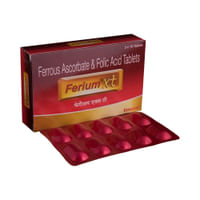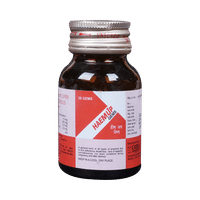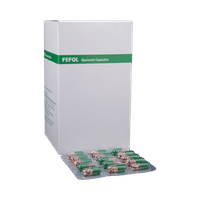Barbitoin 30 mg/100 mg Tablet

food interaction for Barbitoin
alcohol interaction for Barbitoin
pregnancy interaction for Barbitoin
lactation interaction for Barbitoin
food
alcohol
pregnancy
lactation
Barbitoin 30 mg/100 mg Tablet may be taken with or without food, but it is better to take it at a fixed time.
None
None
CAUTION
It is unsafe to consume alcohol with Barbitoin 30 mg/100 mg Tablet.
UNSAFE
Barbitoin 30 mg/100 mg Tablet is unsafe to use during pregnancy as there is definite evidence of risk to the developing baby. However, the doctor may rarely prescribe it in some life-threatening situations if the benefits are more than the potential risks. Please consult your doctor.
CONSULT YOUR DOCTOR
Barbitoin 30 mg/100 mg Tablet is probably unsafe to use during breastfeeding. Limited human data suggests that the drug may pass into the breastmilk and harm the baby.
Baby should be monitored for excessive sleepiness and weight gain.
Baby should be monitored for excessive sleepiness and weight gain.
CONSULT YOUR DOCTOR
SALT INFORMATION FOR Barbitoin
Phenobarbitone(30mg)
Uses
Phenobarbitone is used in epilepsy/seizures.
How it works
Phenobarbitone controls seizures or fits by increasing the action of GABA, a chemical messenger which suppresses the abnormal and excessive activity of the nerve cells in the brain.
Common side effects
Nausea, Headache, Excitement, Hangover, Vomiting, Vertigo, Softening of bones, Sleepiness, Muscle pain, Neuralgia, Joint inflammation, Lethargy, Restlessness, Respiratory depression, Hypersensitivity
Phenytoin(100mg)
Uses
Phenytoin is used in the treatment of epilepsy/seizures.
How it works
Phenytoin is an antiepileptic medication. It controls seizures or fits by decreasing the abnormal and excessive activity of the nerve cells in the brain.
Common side effects
Dizziness, Insomnia (difficulty in sleeping), Vertigo, Nystagmus (involuntary eye movement), Peripheral neuropathy (tingling and numbness of feet and hand), Skin rash, Softening of bones, Increased glucose level in blood, Megaloblastic anemia, Gingival hyperplasia, Excessive hair growth on face, Hypotension (low blood pressure), Abnormality of voluntary movements, Arrhythmia (irregular heartbeats), Encephalopathy, Psychosis, Hyperkinesia, Hypersensitivity, Stevens-Johnson syndrome, Cardiovascular collapse, Liver failure, Blood circulation disorder, Lymphatic system abnormalities
SUBSTITUTES FOR Barbitoin
20 Substitutes
20 Substitutes
Sorted By
 Rs. 2466.02save 32% more per Tablet
Rs. 2466.02save 32% more per Tablet Rs. 444.58save 18% more per Tablet
Rs. 444.58save 18% more per Tablet Rs. 158.40save 12% more per Tablet
Rs. 158.40save 12% more per Tablet Rs. 18.25save 49% more per Tablet
Rs. 18.25save 49% more per Tablet Rs. 9.66save 73% more per Tablet
Rs. 9.66save 73% more per Tablet
Expert advice FOR Barbitoin
- Phenobarbitone helps in treatment and prevention of seizures.
- It may be habit-forming with long-term use.
- Talk with your doctor if it stops working well. Do not take more than prescribed.
- It may make you very sleepy. Don't drive or do anything that requires mental focus until you know how it affects you.
- Inform your doctor if you notice pain in your joints or if you have a history of bone disease.
- Get regular blood tests done to monitor the amount of medication in your body.
- Talk to your doctor immediately if you notice skin rash accompanied with fever.
- Do not stop taking the medication suddenly without talking to your doctor.
Frequently asked questions FOR Barbitoin
Phenobarbitone
Q. What is Phenobarbitone used for?
Phenobarbitone is prescribed to control seizures or fits. Phenobarbitone belongs to barbiturate group of medicines. In exceptional circumstances, it is also used to treat seizures that sometimes accompany a high fever in children.
Q. What if I forget to take Phenobarbitone?
If you forget to take a dose, take it as soon as you remember. However, if it is time for the next dose, skip the forgotten dose and take the next dose. Do not double the dose to make up for the forgotten dose.
Q. Can Phenobarbitone cause addiction?
Yes, Phenobarbitone may cause addiction in patients with a history of alcoholism and drug abuse if they take it for a prolonged time. Therefore, Phenobarbitone should be avoided in such patients.
Phenytoin
Q. For how long does Phenytoin stay in your system?
On an average, Phenytoin may stay in your system for 5-6 days. This duration varies from person to person. In some cases, it may stay for about 9-10 days.
Q. What happens if I stop taking Phenytoin?
Suddenly stopping Phenytoin may cause non-stop seizures (called status epilepticus), which can endanger life. Do not stop taking the medicine without consulting your doctor. If required, your doctor will slowly reduce the dose before stopping it completely.
Q. What are the symptoms that occur if I take more than the recommended dose of Phenytoin? Can I die from Phenytoin overdose?
Overdose of Phenytoin may cause jerky movements of the eyes (nystagmus), unclear speech, loss of balance, tremor, muscle stiffness or weakness, nausea, vomiting, lightheadedness, fainting, blurred vision, slow and shallow breathing and even coma. Phenytoin overdose can cause very low blood pressure and respiratory problems. As a result of this, the patient can even die.






















